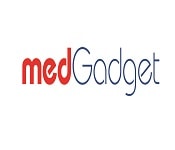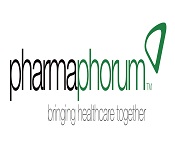Pharmacovigilance and Clinical Trials Conference focuses on the Recent Advancements in Pharmacovigilance and Research and future of Pharma and new technologies in drug safety.
Conference Series warmly invites all the participants across the world to “15th Global Pharmacovigilance & Clinical Trials Summit” on June 28-29, 2022 at Melbourne, Australia.
This conference provides a forum for interaction among attendees with discussion involving discovery of a new drug, Challenges in drug development, Pre-Clinical and Clinical trial reports, Case Studies, Pharmacovigilance, Biosimilar and Bio logistics and its eye on new drug regulatory approvals. Session discussions focus on discussions about approaches and innovations for Patient Benefit Risk Management in Pharma, Biotech and Health care Industry.This is a 2-day Mega Event offering Exhibition, at venue to showcase the new and emerging technologies with Keynote presentation, Oral talks, Poster presentations and Exhibitions.
Why to Attend???
To meet your targeted audience in the Series of CLINICAL TRAILS-2022 Conference with a largest assemblage of participants from the Pharma, Clinical, Healthcare, Drug safety, Clinical trials, Pharmacovigilance and Regulatory community providing an international and non-biased platform for professionals working in early discovery and preclinical research to exchange ideas on best practice and share case studies on innovation within the area alarming on Medication Safety It is an Unique Opportunity for Advertisers and Sponsors at this International event.
Who to attend???
-
Pharmacovigilance Students, Scientists
-
Pharmacovigilance Researchers & Teachers
-
Medical Colleges
-
Pharmaceutical Industries
-
Pharmacovigilance Associations and Societies
-
Pharmacovigilance Training Institutes
-
Software Developing Companies
-
Medical Devices Manufacturing Companies
-
Data Management Companies
-
Business Entrepreneurs
Also, Directors/Senior Directors/Executive Directors and Vice Presidents/Senior Vice Presidents/Executive Vice Presidents and Heads/Leaders/Partners of:
-
CROs and CMOs
-
Clinical Research Sites
-
Pharma/Biotech and Medical Device industries
-
Hospitals, Associations
-
University Faculties scientists who are related to clinical and medical research like
-
Directors
-
Senior Professors
-
Assistant Professors
-
Associate Professor
-
Research Scholars
-
Ph.D Students
Track 1: Pharmacovigilance and Clinical Trials
Pharmacovigilance and Clinical Trials will have the fast development of new drug and innovative therapeutics, new pharmacovigilance actions and methods have to be implemented for assurance and Patient Benefit Safety Management in Pharma, Biotech and Health Care. Clinical Trails contain the best quality level to calculate the viability and wellbeing of new medications. However, in light of the fact that they are directed in homogeneous conditions a long way from this present reality of solution and use, errors in patient choice or treatment situations may change both the viability and risks.
Track 2: Pharmacovigilance Practice
The piece of Good Pharmacovigilance Practice and Pharmaco-epidemiology in Risk Management is widely to manufacture the probability of productive effects of a drug in a people than the probability of antagonistic effects and to keep up the Good Reporting Practices by evading the important matters in peril organization. Moreover, it is basic to center around Signal examination by party the truths on new or cloud solution influences that is possibly produced by a medicine and that finally should incite ensuring prosperity. The pharmacovigilance and clinical preliminaries organizations generous associations should have the Pharmacovigilance validation.
Track 3: Clinical Trials Pharmacovigilance
A clinical preliminary includes the testing of additional medication (or other treatment) to gauge whether it is influential and safe. Clinical preliminaries of medications can be divided into those surveying the treatment of the sickness (for example asthma) or those assessing medications to counteract the happening of huge medicinal services events later on (for example stroke). Clinical preliminaries take the quantitative data around the advantages, antagonistic influences and potential services of new medicates that license prescribers and patients to settle on sound choices with respect to tranquilize treatment.
Track 4: Pharmacokinetics and Pharmacodynamics in Drugs
Pharmacokinetics is currently defined because the study of the time course of drug absorption, distribution, metabolism, and excretion. Clinical pharmacokinetics is that the appliance of pharmacokinetic principles to the safe and effective therapeutic management of drugs during a private patient. Primary goals of clinical pharmacokinetics include enhancing efficacy and decreasing toxicity of a patient’s drug therapy. the event of strong correlations between drug concentrations and their pharmacologic responses has enabled clinicians to use pharmacokinetic principles to actual patient situations. Pharmacodynamics refers to the connection between drug concentration at the situation of action and thus the resulting effect, including the time course and intensity of therapeutic and adverse effects. The effect of a drug present at the situation of action is set by that drug’s binding with a receptor.
Track 5: Global Clinical Trials
Clinical research by academic institutions and pharmaceutical companies has followed the overall trend of globalization and has moved inexorably towards low- and middle-income countries. This trend has raised various concerns, including whether the research being conducted is useful to public health in these countries or whether economically disadvantaged populations are being exploited for the advantage of patients in rich countries. Nevertheless, clinical trials and therefore the research and health care that accompany them can directly benefit patients, especially those that would otherwise haven't any or only little access to health care services. Clinical trials are a necessary step in drug development and are conducted throughout the planet, both in developed and in developing countries. Trials themselves are thus not intrinsically immoral, and there are a spread of reasons to conduct responsible clinical trials. Doing so, for instance, is usually the sole thanks to test drugs and vaccines for diseases that predominantly afflict people.
Track 6: Drug Safety
The drug safety thought has reached plenty of attention during the past period cheers to the very fact it plays a important role in patients’ health. Current laws stress this idea must to be enclosed within the method of latest medications’ support and continued conduct of post-marketing drug evaluations. Benefit–risk assessment ought to be supposed of by all health care professionals when they ought to offer exact medicine to detailed teams of patients. Consequently, additional care ought to slope to some patients, like pregnant girls, youngsters and therefore the aged, meanwhile they're thought of susceptible populations.
Track 7: Clinical Trial Protocols
All uneven clinical trials (RCTs) must a protocol; but, numerous studies have tinted protocol deficiencies. Reportage pointers might advance the content of analysis reports and, if developed mistreatment sturdy ways, might increase the utility of reports to stakeholders. The mark of this study was to reliably found and review RCT protocol pointers, to appraise their characteristics and ways of development, and to check references.
Track 8: Clinical Research and Statistics
Clinical analysis comprises exploring deliberate medical treatments, evaluating the relative advantages of good therapies, and beginning optimum treatment combos. Clinical analysis makes an attempt to answer queries like “should a person with glandular carcinoma endure radical ablation or radiation or wait and see?” Statistics play a awfully important role in any run from style, conduct, analysis and reportage in terms of dominant for and minimizing biases, contradictory factors, and mensuration irregular errors. A grasp of applied math strategies is crucial to understanding randomized trial strategies and results.
Track 9: Clinical Database Management
The field of clinical knowledge management (CDM) has established itself cheers to demands from every the pharmaceutical business and therefore the preventive authorities. Meanwhile the inventiveness to “fast-track” the period of pharmaceutical product stands to hasten, preventive entities have responded by requiring quality-assurance values be met in accumulating the info employed in the drug analysis system. Clinical knowledge management systems (CDMS) area unit mainly important in trials conducted across medical centers throughout which a colossal quantity of information is made.
Track 10: Analysis of Data Quality and Management
Pharmacovigilance depends on data collected from the collecting of separate case safety reports and dissimilar pharmacoepidemiological information. Even given the vital limits of impulsive reports, the excellence of this information supply will be better with smart information quality management. Though under-reporting cannot be remedied this manner, the negative impact of incomplete reports, that is another significant issue in pharmacovigilance, will be reduced. Quality management consists of quality designing, internal control, quality assurance and quality enhancements. The pharmacovigilance processing cycle starts with material variety and in computerized systems, information entry; following step is information storage and maintenance; followed by information choice, retrieval and operation. The ensuing information output is analysed and assessed. Finally, conclusions square measure drawn and selections created.
Track 11: Bio pharmaceutics
Biopharmaceuticals square amount vital treatment choices for a spread of chronic and characteristically critical diseases. Likened with the normal minute molecule medicine, biopharmaceuticals have exact options, which can conjointly effect their safety profile. They have, as an example, a posh production technique, restricted sure thing of analyzing to clinical knowledge, a high possible for immunogenicity, related adverse events will usually be related with an overstated medical specialty.
Track 12: Regulatory Affairs
Regulatory Affairs (RA), likewise known as government difficulties, square amount a business privileged managed enterprises, for case, set drugs, healthy gadgets, liveliness, good cash, medium so on. Body Affairs similarly encompasses a bound position within the human services enterprises (pharmaceuticals, therapeutic gadgets, biologics and cooperative nourishments). Body problems (therapeutic issues) specialists (otherwise called body experts) usually have duty regarding the related to general territories.
Track 13: Pharmacovigilance Significance and Scope
Pharmacovigilance key goal is to carry clear information concerning drug safety and its Risk or compensations of medicine to the patients. Patients are chief finish operators of medication. Patient information leaflet with reference to medication to be providing to the patient to spread the welfares of the medication and to scale back the casual related to them. It's vital for Risk reduction by creating associate early discovery and preventing the development of the adverse effects. Whole info of inadvertent and severe adverse events may well be discovery through the Pharmacovigilance. It couldn't be done through clinical trials that are lead in associate in vivo methodology.
Track 14: Drug related problems in healthcare
A drug-related Problem (DRP) is an occasion or condition regarding drug medical aid that actually or perhaps inhibits with anticipated health results Drug medical aid matters area unit the clinical domain of the pharmaceutical care practician. The aim of individual drug medical aid subjects is to contribution patients reach their goals of medical aid and know the most effective potential results from drug medical aid within the next sections, and to discuss the nomenclature, components, and classes of drug medical aid subjects and their central position to the smear
Track 15: Health technology assessment
Health technology assessment (HTA) is that the systematic evaluation of the properties and effects of a health technology, addressing the direct and intended effects of this technology, also as its indirect and unintended consequences, and aimed mainly at informing deciding regarding health technologies. it's other definitions including a way of evidence synthesis that considers evidence regarding clinical effectiveness, safety, cost-effectiveness and, when broadly applied, includes social, ethical, and legal aspects of the utilization of health technologies. The precise balance of those inputs depends on the aim of every individual HTA.a serious use of HTAs is in informing reimbursement and coverage decisions by insurers and national health systems, during which case HTAs should include benefit-harm assessment and economic evaluation. and a multidisciplinary process that summarises information about the medical, social, economic and ethical issues associated with the utilization of a health technology during a systematic, transparent, unbiased, robust manner. Its aim is to tell the formulation of safe, effective, health policies that are patient focused and seek to realize best value. Despite its policy goals, HTA should be firmly rooted in research and therefore the methodology.



